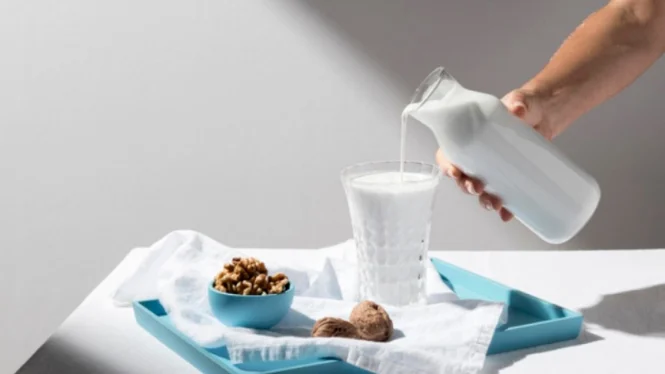Headline: Indonesia’s Agriculture Ministry Rejects Milk Import Plans, Boosts Local Dairy Initiatives
In a significant move for the country’s agricultural landscape, Indonesia’s Ministry of Agriculture has dismissed rumors regarding a proposed import of 1.8 million tons of milk from Vietnam as part of President Prabowo Subianto’s Free Nutritious Meal Program. Instead, the ministry is focusing on attracting foreign investment to strengthen the local dairy industry. This initiative is aimed at enhancing food security and increasing domestic dairy production.
Renewed Focus on Local Production
At a press conference in Jakarta on October 28, 2024, Minister of Agriculture Andi Amran Sulaiman announced that five international dairy companies from Qatar, Brazil, the United States, and Vietnam have expressed interest in investing in Indonesia’s dairy sector. “There are five companies. One from Qatar and two from Brazil. If I am not mistaken, one each from America and Vietnam as well,” stated Amran.
The ministry’s decision reflects a broader governmental objective to promote local agriculture and ensure a sustainable supply of nutritious food throughout Indonesia. By fostering domestic production, the government aims to reduce reliance on imports, consequently bolstering food security.
Building Collaborative Partnerships
To facilitate these investment opportunities, Amran plans to meet with the Vietnamese Ambassador on November 1, 2024, to discuss potential collaborations on establishing a dairy processing industry in Indonesia. The minister has highlighted the abundance of land available for investment. Possible factory locations include Central Sulawesi, Kalimantan, and Merauke in South Papua.
“We have a lot of land, and we give them options,” Amran said during the press conference. This statement underscores the ministry’s commitment to providing attractive options for foreign investors willing to engage in Indonesia’s dairy market.
Streamlining the Investment Process
The Ministry of Agriculture is working in coordination with other relevant ministries and institutions to ensure a seamless investment process. Moch. Arief Cahyono, the Ministry’s spokesman, emphasized the ministry’s policy of enhancing local production rather than relying on imports. “Our policy is not to import dairy products, but to boost local production by attracting foreign investment,” Cahyono stated.
Amran reiterated the importance of creating a conducive environment for investors. “The key is to provide comfort to investors, especially in the agricultural sector. We will oversee their entry,” he added, highlighting the government’s proactive approach toward foreign involvement.
Implications for the Dairy Sector and Beyond
This initiative marks a turning point for Indonesia’s dairy sector, which has faced challenges in meeting local demand. By inviting foreign investment, the government aims not only to increase local production capacity but also to elevate the standards of the dairy industry in the country.
Conclusion
As these developments unfold, there’s significant potential for transforming the local dairy sector into a vibrant industry that supports the nation’s goals for food sovereignty and nutritional security. With the continued collaboration between the government and foreign investors, Indonesia may soon see a thriving dairy industry that benefits both farmers and consumers.
Your feedback is essential! What are your thoughts on Indonesia’s strategy to bolster its dairy industry? Share your opinions in the comments below or connect with us on social media.
For more insights into the agricultural trends in Indonesia, explore our articles on the potential of local industries and international investment in agriculture.

